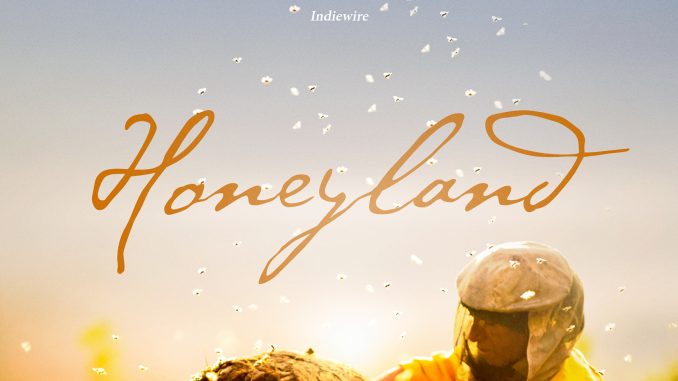
Honeyland intimately chronicles a year in the life of a beekeeper living in the remote, dusty hills of Macedonia. Hetidze Muratova, a single, middle-aged Turkish woman, is tasked with the role of caring for her aging mother and the land around her. Although her way of life is foreign to the many audiences who will watch this documentary as it tours film festivals, it perfectly reflects a form of environmental stewardship that the world desperately needs. For the first third of the film you might think Honeyland is just that; a documentation of environmental virtue and a lost way of life. But conflict arises when a nomadic family moves in next door. Hussein and Ljutvie, along with their gaggle of children, quickly cause problems for Hetidze; as their way of life destroys the land around Hetidze, and their beekeeping chases away her beloved colonies. Hetidze’s livelihood is threatened by this very poor family who have many mouths to feed, but lack an understanding and reverence for the land. The audience is left to consider the complexity of this ideological tension, which very closely mirrors our global climate crisis.
There were moments in watching Honeyland where I wondered how the directors could construct such a perfect narrative tension from one woman’s rather strange, rural existence. For instance, in a climactic scene after Hussein starts large brush fires in a short-sighted plan to regenerate the grass, we see Hetidze futilely swatting at the immense fire with a small branch. It is a dark, but almost comically accurate analog for our present climate crisis. The film’s directors have commented on the striking analogy. “Any reality, if you stay long enough, is a great fiction,” says one of the film’s directors, Tamara Kotevska.
This film transports the audience on a visual journey; its directors do not speak Turkish and could not understand any of the dialogue they were filming until six months into post-production, when translated transcripts became available. Honeyland was built to work both with and without dialogue; it is visually communicative and strikingly beautiful. All art, even documentaries, promotes the thesis of its creators. These filmmakers have but one: the world needs equal benefits between users (humans) and providers (ecology). Hetizde’s way of life, precarious as it is, embodies this message.
Honeyland will be showing at ReFrame Film Festival Sunday January 26, 10 a.m. at Showplace. Tickets are available online here.
